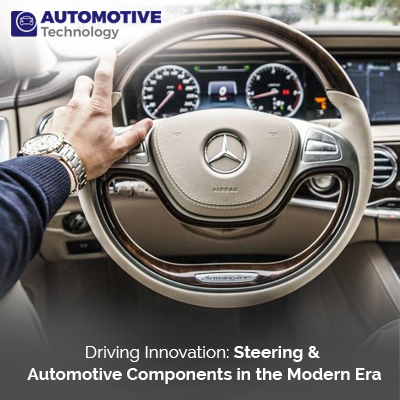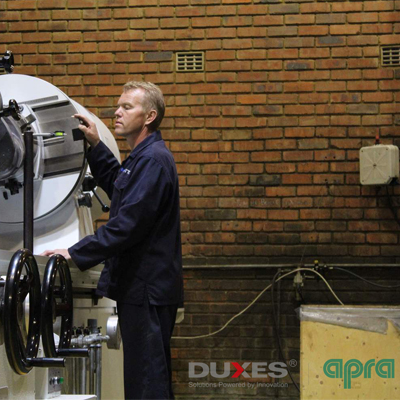Articles
Driving Innovation: Steering and Automotive Components in the Modern Era

In today's rapidly evolving automotive landscape, innovation is at the forefront of transforming steering and automotive components, ushering in a new era of driving experiences characterized by enhanced performance, safety, and sustainability. This article explores the multifaceted realm of innovation in steering and automotive components, highlighting key advancements shaping the modern automotive industry.
1. Electric Power Steering (EPS) Systems
The transition from traditional hydraulic power steering systems to Electric Power Steering (EPS) systems marks a significant technological leap. EPS systems leverage electric motors to provide steering assistance, offering several advantages over their hydraulic counterparts. These systems contribute to improved fuel efficiency, reduced weight, and enhanced responsiveness, resulting in a more agile and fuel-conscious driving experience. Moreover, EPS enables automakers to integrate advanced driver-assist features seamlessly, further enhancing vehicle safety and convenience.
2. Advanced Sensor Technologies
The integration of advanced sensor technologies is revolutionizing steering precision and control. Torque sensors, angle sensors, and position sensors play pivotal roles in modern steering systems, facilitating precise steering adjustments and adaptive assistance based on driving conditions. These sensors not only enhance driving dynamics but also form the foundation for intelligent driver-assist systems such as lane-keeping assistance, adaptive cruise control, and automated parking, thereby elevating both safety and convenience for drivers.
3. Drive-by-Wire Technology
Drive-by-Wire (DBW) technology represents a paradigm shift in automotive steering, eliminating mechanical linkages in favor of electronic control systems. By decoupling the steering wheel from the wheels, DBW systems enable customizable steering settings, adaptive steering ratios, and seamless integration with autonomous driving functionalities. This technology empowers drivers with greater flexibility and control over steering characteristics while paving the way for future innovations in autonomous vehicle navigation and control.
4. Steer-by-Wire Systems
Steer-by-Wire (SBW) systems represent the pinnacle of electronic steering advancements, completely replacing traditional steering components with electronic actuators. SBW systems offer unparalleled versatility in steering feel customization, providing drivers with adjustable feedback settings and adaptive response capabilities. Moreover, these systems enhance vehicle safety through redundant steering mechanisms, ensuring continued operability in the event of component failures. SBW technology is poised to play a crucial role in shaping the future of autonomous driving and human-machine interfaces (HMI).
5. Materials Innovation
The adoption of lightweight materials such as carbon fiber composites and high-strength alloys is revolutionizing automotive component design, including steering systems. Lightweight materials contribute to overall vehicle weight reduction, leading to improved fuel efficiency and dynamic performance. Furthermore, these materials offer exceptional durability and structural integrity, enhancing the longevity and reliability of steering components while meeting stringent safety standards.
6. Integration with Connectivity and AI
The convergence of steering systems with vehicle connectivity and Artificial Intelligence (AI) capabilities opens new avenues for enhanced functionality and performance optimization. Integrated sensors and AI algorithms enable predictive maintenance, real-time data analysis for optimal steering performance, and adaptive driving modes tailored to individual preferences. Additionally, connectivity features facilitate over-the-air updates and remote diagnostics, ensuring ongoing system refinement and responsiveness.
7. Safety Innovations
Safety remains a paramount concern in automotive design, and steering innovations play a crucial role in enhancing vehicle safety. Advanced safety features such as Electronic Stability Control (ESC), adaptive steering assist, and collision avoidance systems are seamlessly integrated into modern steering systems. These innovations mitigate risks, improve vehicle stability, and assist drivers in navigating challenging driving scenarios, ultimately reducing the likelihood of accidents and enhancing occupant protection.
8. Autonomous Driving
The advent of autonomous driving technologies is reshaping the automotive landscape, with steering systems playing a pivotal role in enabling autonomous navigation and control. Innovations such as steer-by-wire capabilities, sensor fusion for precise positioning, and AI-driven decision-making algorithms are integral to autonomous vehicle development. These advancements promise a future where hands-free driving is not only feasible but also safer and more efficient, revolutionizing transportation systems globally.
9. Human-Machine Interface (HMI)
The evolution of Human-Machine Interface (HMI) design is enhancing driver interaction with steering controls and vehicle systems. Intuitive interfaces incorporating touchscreens, haptic feedback, voice commands, and gesture recognition streamline driver inputs, reducing distractions and improving overall driving comfort. HMI advancements prioritize user experience, promoting safer and more engaging driving environments while facilitating seamless integration with infotainment and connectivity features.
10. Environmental Sustainability
In response to growing environmental concerns, automotive manufacturers are prioritizing sustainability in steering and automotive component design. This includes the use of eco-friendly materials, recyclable components, and energy-efficient manufacturing processes. Sustainability initiatives extend beyond product design to encompass lifecycle considerations, promoting responsible consumption and minimizing environmental impact throughout the vehicle's lifespan.
In conclusion, the ongoing wave of innovation in steering and automotive components is reshaping the automotive industry's trajectory, driving advancements in performance, safety, and environmental responsibility. From Electric Power Steering systems to autonomous driving technologies and sustainable design practices, the modern era of automotive engineering is defined by a relentless pursuit of excellence and innovation. As these technologies continue to evolve, drivers can anticipate enhanced driving experiences characterized by unparalleled convenience, safety, and sustainability.



